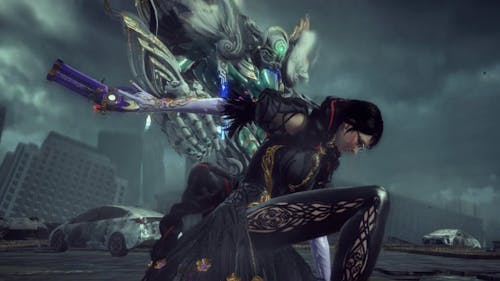Bayonetta's voice acting controversy shines light on video game industry issue

One of the year's most anticipated games has been marred in controversy. PlatinumGames’ upcoming title "Bayonetta 3" kept fans waiting since its announcement back in the 2017 Game Awards show, where it was confirmed to be in development for the then-newly released Nintendo Switch. This was all the information gamers would get until a trailer released in July revealed the game would be launching on October 28.
Later in September, fans got their first look at gameplay via an 8-minute trailer, which not only showcased new gameplay systems but also showed the first instances of the titular character Bayonetta speaking. Fans were quick to notice the voice sounded a bit off from the previous two titles.
The game’s director Yusuke Miyata confirmed that Bayonetta’s previous voice actor, Hellena Taylor, had been replaced by industry veteran Jennifer Hale, citing “various overlapping circumstances” as the reason for the recasting, according to an interview with Game Informer.
Fast forward to October, fans noticed a Twitter thread created by Taylor offering a different explanation as to why she would not be returning to voice Bayonetta: "The ‘Bayonetta’ franchise made an approximated $450,000,000. That’s not including merchandise … What did they offer to pay me? The final offer to do the whole game as a buy-out, a flat rate, was $4,000."
According to Taylor, after receiving what she described as “an insulting offer” following her successful re-audition for the character, she wrote to the vice president of Platinum Games, as well as the lead writer of the previous two "Bayonetta” titles, Hideki Kamiya, in an attempt to renegotiate her offer. It was through his reply that she says was offered the $4,000. Taylor’s thread also contained calls for fans to both boycott the game, and donate whatever money they would have spent on it to charity.
Kamiya seemingly refuted Taylor’s claims in a tweet published shortly after her thread which reads "Sad and deplorable about the attitude of untruth. That’s what all I can tell now."
The topic of video game voice actors’ compensation has been a hot-button issue within the industry for years. Most notably, Rockstar Games' "Grand Theft Auto IV" was a monumental commercial success. It grossed more than $2 billion in total sales and took the Guinness World Record in 2008 for the highest revenue generated by an entertainment product in 24 hours at the time among other accolades.
Despite this success, the game’s leading voice actor Michael Hollick was only paid $100,000 for the 15 months of work he had put into the project.
In response to her video, several figures in the voice acting industry came forward with their own experiences of talent undervaluation. Sean Chiplock, best known for his role as the character Revali in Nintendo’s "The Legend of Zelda: Breath of the Wild," said that he had been similarly compensated for his work on the game, having only been paid no more than $3,000 despite having also lent his voice to two other characters.
Although the fact still remains that video game voice actors have a history of undervaluation, there are a few aspects of Taylor’s story which don’t seem to add up. Taylor (as well as Hale) would have been covered under rules negotiated by the Screen Actors Guild-American Federation of Television and Radio Artists which set voice actors’ minimum pay to $1,000 per session.
In addition, Taylor was slightly off when giving her account of why she had been recast. Although she stated in her thread “Platinum had the cheek to say I was busy. That they couldn’t make it work with Ms. Taylor’s schedule. Well I had nothing but time,” in reality, all PlatinumGames had said on the matter was its previously mentioned statement about "overlapping circumstances."
Most damning of all, though, was a report initially published by Bloomberg — and later corroborated by Video Games Chronicle — which cited an anonymous insider’s account from within PlatinumGames who asserted that the developer sought to have Taylor reprise her role as Bayonetta.
The developer proposed a rate between $3,000 and $4,000 per session for upward of four sessions but recast her when Taylor demanded a six-figure payment, in addition to residuals from game sales — which are essentially unheard of in the context of other AAA games.
PlatinumGames has yet to issue a formal statement regarding the situation, and as the game’s launch has already come and gone, they’re unlikely to do so.



